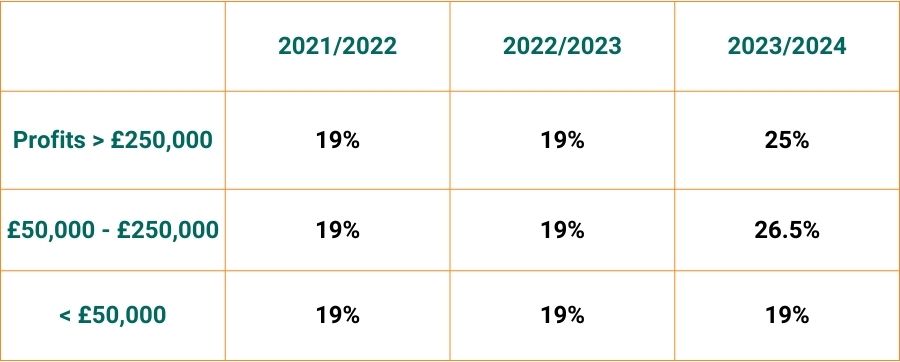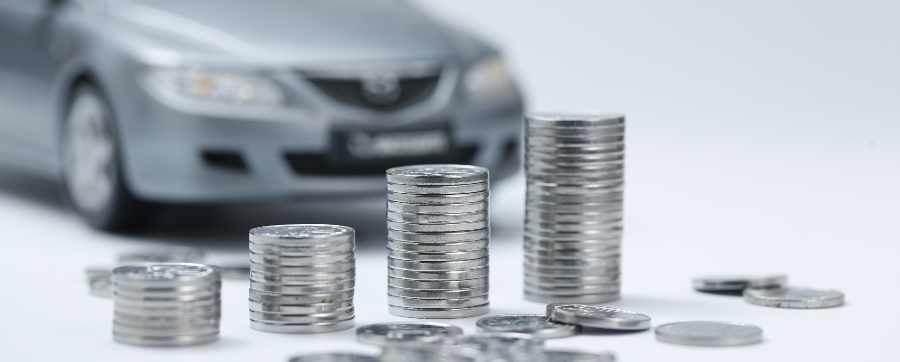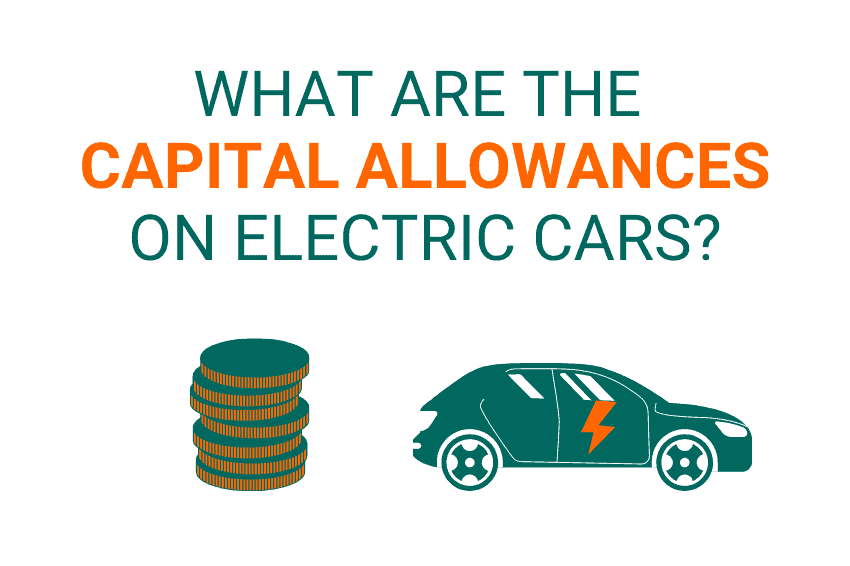- What is capital allowance?
- Who qualifies for capital allowance?
- How can you claim a capital allowance on electric cars?
- Can you claim capital allowances on leased electric cars?
- Should I apply and claim capital allowance?
Is your company looking to supply electric vehicles to your employees or company? Need a better understanding of the best way to do this? If the answer is yes to either of these, then you need to look into the benefits of claiming capital allowances on electric cars before getting your new vehicle.
There is a multitude of advantages to buying an electric car this way. The two main factors you benefit from are getting an electric car for free (read on for clarification) whilst also enjoying tax savings at the same time.
How is this even possible? Read on to discover how…
What is capital allowance?
Capital allowance, also known as a write-down allowance, is essentially the government allowing a financially beneficial loophole. This allows you to take a percentage of the value of an item your business owns off of your profits each year.
Let’s start at the beginning. Companies pay taxes every year depending on their profits. Nearly every company measures success by how much money they make every year. So, it’s fair to say that the goal of almost every company is to avoid paying taxes if they can (most times).
The main way to do this is by noting down everything you own including workspace, work furniture, and cupboards overloaded with mugs and cups – every physical asset can go towards taking off the annual tax you pay. For this, you can thank the existence of depreciation.
The same goes for any vehicle you own, because of depreciation the value of the asset is reduced, meaning, you pay less tax each year.
This is good if you own a car, this is even better if you own an electric vehicle.
Why?
First-year allowance (FYA). Forewarning: rest your chin safely now…your jaw will drop.
Thanks to FYA you can claim 100% of the cost of your new or unused electric car in the first year of purchase. That’s right. Grab your jaw. The cost of your new company’s electric car is essentially free for the first year.

It’s worth noting the vehicles that help you benefit from these tax savings must be purchased through hire purchase, contract purchase or just plain outright buying it. Any vehicles under contract hire or finance lease will not be eligible for capital allowance.
Who qualifies for capital allowance?
Those who are eligible to apply for a capital allowance on electric cars are any business. This includes:
- Sole trader
- Partnerships
- State Limited company
- Public limited company
Individuals or self-employed workers cannot apply for the capital allowance scheme. If you fall under either of these categories and are looking to get a vehicle, our best advice is to get it through a business lease. The two options include contract hire and finance lease.

How can you claim capital allowances on electric cars?
As mentioned previously, when you claim capital allowance on a new or unused electric car, not only do you benefit from this, but you also get to enjoy the first year of purchase completely cost-free!
Let’s imagine you’ve decided to buy the latest Polestar 2 for £49,900. You may think ouch, but your wallet won’t feel a thing! (For the first year).
What happens after the first year?
In the years following the first year of purchase and claiming the first year allowance, you cannot claim any more tax benefits from your new electric vehicle. This is because you have claimed 100% of the cost of the vehicle in the first year.
When you come to eventually sell the vehicle your accountant will make an adjustment for you, and you will have to pay back some of the money you originally claimed to HMRC based on the selling price.
So, you essentially pay back the percentage of tax you saved at the beginning based on the sales price. For example, say you saved 20% of tax in the first year, you would then pay this percentage back when you sell the vehicle.
If you sell the vehicle for £30,000 you would pay 20% of this back to HMRC.
Corporation tax
What is corporation tax? Corporation tax is the amount of tax a company pays depending on its annual profits. This tax is paid only by UK-limited companies. Sole trader and partnership companies do not have to pay corporation tax, instead, they must fill out a tax return and apply income tax to their earnings.
There are certain items a limited company can take off of their total profit made, which then reduces how much tax they pay. This includes expenses such as investments, assets like land, property, shares and machinery, and any trading profits.
How much tax you pay will depend on the profit you make annually; this is due to change year by year. See the table below for clarity.

So, let’s say you’ve made a profit of over £100,000 in 2022, you will pay 19% of your profits, the same as those who have made less than £50,000. Seems fair, right?
When the tax year of 2023 to 2024 arrives, strangely if you make £100,000, you will fall in the £50k-250k bracket and will pay 26.5% in tax, which is more than those who earn over £250k and only have to pay 25% in tax.
Now, let’s relate this back to claiming capital allowance on electric cars.
Your company earned £100,000 in 2022/2023, which means you must pay (19%) £19,000 in corporation tax.
Remember that Polestar 2 you bought (let’s pretend)? This can be taken off the total profits made in a year. So, thanks to your premium electric car your total profits come to £50,100.
What does this mean?
You still have to pay 19% corporation tax, however, it’s just 19% of £50,100 rather than £100,000. Not too shabby!
What do you get from this? A huge decrease in tax AND you own something. What a win-win!

So, by buying an electric car through your company, not only do you save a load of corporation tax but you also get to enjoy huge tax savings whilst also fueling your company’s sustainable ethos.
What happens after the first year of owning the vehicle?
When it comes to the tax year of 2023/2024 nothing changes. Of course, the first-year allowance no longer applies. This means in terms of paying corporation tax you cannot benefit from taking the full cost of the vehicle off of your total annual profits. You can, however, enjoy low company car tax on your electric vehicle and reduced fuel costs.

What about when you come to sell your vehicle?
How much you sell your vehicle for, will rely on the depreciation. Let’s say you sell it for £20,000, because you took the benefit of 19% tax savings when you bought it, you would now pay back 19% of £20,000 to HMRC.
So, a key thing to remember here, although you do get 19% off your total profits when you buy your electric vehicle, you must pay back 19% of whatever you sell it for.
This may seem like an annoyance or a catch but remember the years of tax savings you got because you bought an electric vehicle. This isn’t a cost or investment, in the end, it’s a massive saving.
Can you claim capital allowances on leased electric cars?
To this date (14/03/2022) you cannot claim capital allowance on a leased electric car. To benefit from this tax saving you must have the option to purchase at any given point.
What types of vehicle contracts can you claim capital allowance on?
You can claim capital allowance on electric cars that are financed through hire purchase and contract purchase.
In terms of getting the most out of your tax savings, the general rule of thumb is that vehicles worth £50,000 upwards, generally, are more beneficial to get through a contract purchase.
The best vehicles to stick with whilst doing a hire purchase would be those in the range of £35,000 to £50,000.
Generally, if you’re looking to buy an electric car worth £75,000+ your best option is to finance it through a purchase scheme rather than a hire purchase. However, it does depend on the vehicle.
Why is this?
Not all vehicles depreciate in the same way. So, investing in a car on the higher end of the price bracket which has a high depreciation would be a risk. This is because when you come to sell the vehicle you may lose out on money rather than make any money. So, this would be a cost rather than an investment.
It’s also worth remembering that a fleet of electric vehicles can also be claimed under the capital allowance.
Are you a fleet manager that has been given the task of sorting out the company fleet but is not sure where to turn? We can help.

Should I apply and claim capital allowance?
Are you a business owner, sole trader, partnership, LTD or PLC company interested in saving money? Then claiming capital allowances on electric cars is a no-brainer.
This is a very rare and unusual opportunity that isn’t likely to be around forever. At some point revenue will close the doors on this opportunity and it will become history.
If we consider the fact that the UK Government has spent billions on Covid, we should also assume that they’ll need to make this money back at some point. On top of this, with the effects of the microchip shortage, revenue will be looking at how they can save or make money. Tax loopholes like this will not last forever.
In order to benefit from capital allowance on electric cars, you need to have taken delivery of the vehicle before this scheme stops. If your vehicle is on order and the capital allowance scheme stops, you will not be able to make a claim.
So, if you’re serious about reaping the benefits of electric vehicles and capital allowance, it’s important to act today.
*Disclaimer: we are not tax advisers and you should seek your own advice from professionals

